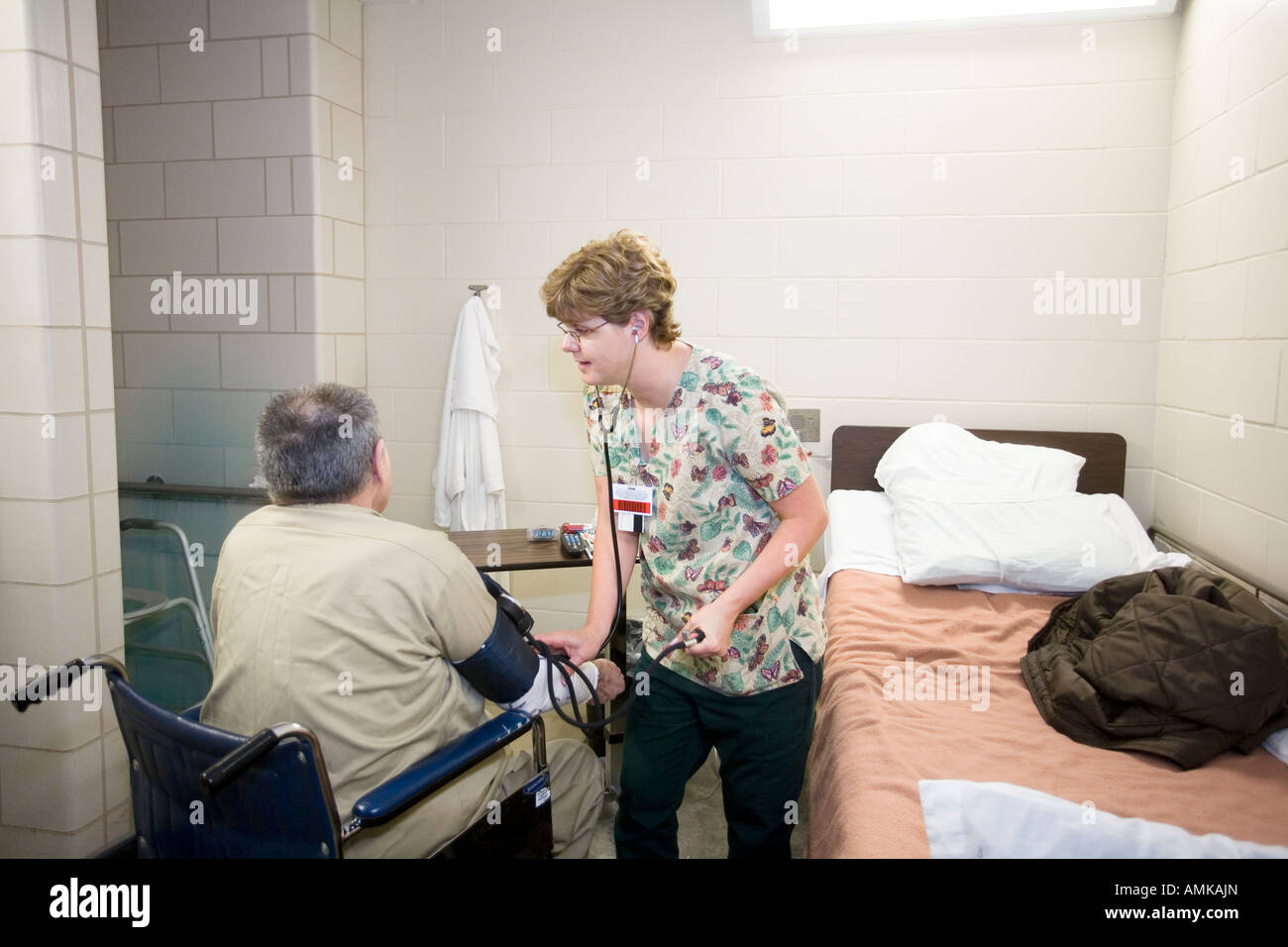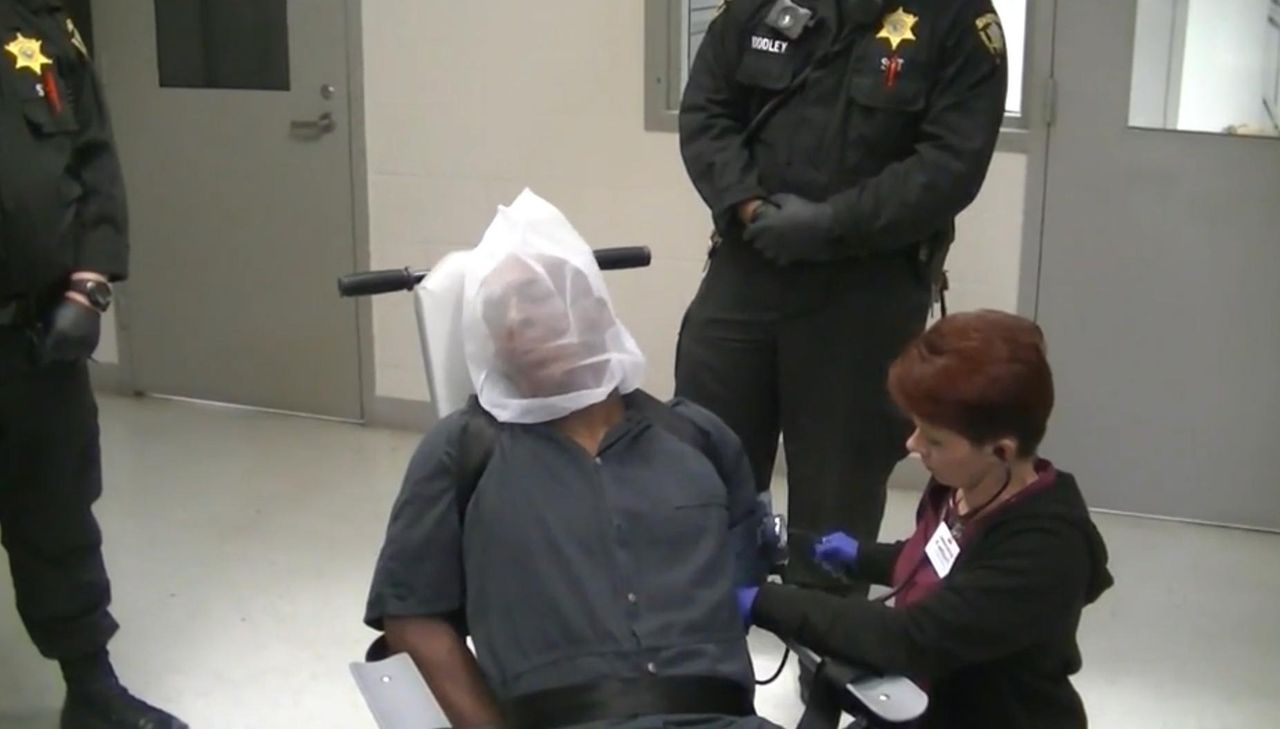Prison Neglect: Inmate's Death After Ignoring Basic Nursing Care - Details
Can a system designed to protect and rehabilitate actually become a death sentence? In numerous instances across the United States, the answer, tragically, appears to be yes, as a failure to provide adequate medical care within correctional facilities has led to preventable deaths, leaving families devastated and raising critical questions about accountability.
The grim reality of inadequate healthcare within the nation's prisons and jails is starkly illustrated by a series of cases, each representing a tragic failure of the system. These failures often involve the deliberate or negligent disregard of inmates' medical needs, leading to dire consequences. One such instance involved the death of an inmate whose medical crisis was continuously ignored by federal corrections staff, including a lieutenant who was later found guilty of failing to ensure he received the necessary care. The circumstances surrounding these cases paint a disturbing picture of systemic failures, individual negligence, and a troubling lack of oversight.
Consider the case of a correctional health expert who reviewed the case and determined that the basic standards of nursing care were not met. According to reports, the nurse in question failed to provide the most basic nursing care. The expert stated that she failed at "the most basic nursing care such as taking vitals or other basic medical assessments" The expert reportedly determined that she had enough education and experience to know something was seriously wrong with the inmate.
Another tragic scenario unfolded in Petersburg, where Shronda Covington, 49, and registered nurse Tonya Farley, 53, were on duty at the Federal Correctional Institution on a fateful day in January. In the same institution, a trained EMT, Tiffany Womack, attempted to perform a medical evaluation on an inmate, a crucial assessment that would have checked his heart rate, blood pressure, and other vital signs. However, her efforts were thwarted when another medical professional, Visser, refused to allow her to proceed, effectively denying the inmate the opportunity for potentially life-saving care.
In the state of Minnesota, a nurse at a county jail is facing a manslaughter charge nearly six years after an inmate under her care died. This case is a painful reminder of the consequences of negligence, compounded by the fact that a $2.6 million lawsuit was filed, and a new law was enacted in the victims name to prevent similar tragedies from happening again. These incidents have prompted legal action and sparked public outrage.
| Case Details | Information |
|---|---|
| Incident Location | Federal Correctional Institution, Petersburg, Virginia; County Jail, Minnesota |
| Key Personnel Involved | Shronda Covington (Nurse), Tonya Farley (Nurse), Visser (Medical Professional), Tiffany Womack (EMT), Skroch (Nurse) |
| Nature of Negligence | Failure to provide basic nursing care, ignoring medical distress signs, refusal to allow medical evaluations. |
| Consequences | Inmate deaths, legal charges (manslaughter), lawsuits ($2.6 million), conviction (federal prison lieutenant and nurse), new law in the victims name. |
| Relevant Date | January (FCI Petersburg Incident); March 3, 2021 (U.S. Legal Matters) |
The case of the Virginia prison lieutenant and nurse further highlights the scope of the problem. Authorities announced their conviction after they ignored an inmates medical crisis, which ultimately led to his death. This pattern of negligence is consistent across several cases, often involving the failure to respond to clear signs of medical distress.
The stories of those who have suffered due to inadequate care in correctional facilities share a common thread: a disregard for the basic principles of healthcare, a lack of proper training and supervision, and often, a systemic indifference to the well-being of the incarcerated. This indifference can be seen in the failure to perform routine medical assessments, the dismissal of serious health concerns, and the outright refusal to provide necessary treatment.
The ripple effects of these failures extend far beyond the inmates themselves. Families are left to mourn the loss of loved ones, grappling with the knowledge that their deaths could have been prevented. The legal battles that often follow further burden the affected families. These legal battles can involve lawsuits against the correctional facilities and the individuals responsible for the negligence.
The consequences of such actions are far-reaching. The cases of these deaths are just the tip of the iceberg. The issue of healthcare in correctional facilities is a complex issue with systemic problems. These deaths highlight the systemic issues that exist in correctional facilities. These systemic issues include understaffing, inadequate training, and a lack of accountability. The lack of resources allocated to healthcare for inmates is a severe problem in correctional facilities. The existing system needs reform, with an increased allocation of resources to healthcare for inmates.
The stories of these deaths should serve as a catalyst for reform. The correctional facilities should prioritize the health and safety of their inmates. The correctional facilities should implement policies and procedures that protect the rights and well-being of inmates. It should also ensure that these policies are consistently followed by all staff members. It is imperative to address these issues and ensure that incarcerated individuals receive the medical care they need and deserve. This commitment to justice and human dignity is a cornerstone of a truly just society.
The issue also extends to the quality of care. A lack of proper training and qualification among medical staff working in these environments can mean that crucial medical issues are missed, and the outcomes can prove fatal. In the case of Skroch, who failed at the most basic of nursing care, the importance of qualified personnel is clear. It is crucial that nurses and other medical personnel have the right qualifications.
The incidents highlighted here are not isolated events. They represent a pattern of negligence and systemic failures that demands urgent attention. They provide a grim reminder of the importance of providing basic human rights, including access to adequate medical care. Only then can such preventable tragedies be averted, and justice be served for the victims and their families.
It is important to address these issues and ensure that incarcerated individuals receive the medical care they need and deserve. The need for accountability and justice is clear. The stories of those who have died as a result of neglected medical care within correctional facilities must serve as a call to action. These tragedies are a serious issue that must be addressed.
In the face of these tragedies, the importance of thorough investigations, rigorous legal proceedings, and systemic reforms cannot be overstated. It is crucial to hold those responsible for negligence accountable, to provide justice for the victims and their families, and to prevent future occurrences. The goal is to create a system where all incarcerated individuals receive the medical care they need, in a timely and professional manner. This goal can be achieved by enforcing new laws.
The cases discussed highlight the importance of proper training and qualifications for medical personnel. Inadequate training can lead to missed diagnoses and the failure to provide timely treatment, ultimately resulting in tragic outcomes. It is imperative that medical staff are equipped with the knowledge and skills to identify and respond to medical emergencies. Regular training and continuing education are essential.
The case in Minnesota, where a nurse is facing a manslaughter charge, serves as a strong message. It reminds us that medical professionals working within correctional facilities are held accountable for their actions. This legal action is a crucial step toward ensuring that justice is served and that such incidents are addressed. The legal proceedings involved in these cases are complex and challenging, however, they are crucial.
The role of surveillance video in these investigations is noteworthy. Surveillance footage can capture crucial evidence. Surveillance footage can offer a clear view of the events. These videos are key to revealing the circumstances surrounding an inmate's medical distress. The use of surveillance video provides irrefutable evidence. Surveillance video serves as a key component of transparency and accountability.
The implementation of new laws, as seen in the Minnesota case, is another positive step toward improving healthcare within correctional facilities. These laws are often designed to provide additional safeguards and ensure that inmates receive the medical attention they need. These new laws create more robust standards.
The cases also bring up the issue of proper standards of nursing care. The correctional health expert who reviewed the case, said Skroch failed at "the most basic nursing care." Nurses should be able to take vitals and assess patients' basic medical needs. These basic nursing standards are essential. Nurses must follow the standards.
A case in Virginia showcases the consequences of ignoring an inmates medical distress. The fact that a federal prison lieutenant and a nurse were convicted for their actions, sends a strong message. It emphasizes the importance of accountability. The convictions represent a victory for justice. These cases are a sign that change can happen.
The repeated instances of neglect and the tragic outcomes described within these cases reveal a critical need for a review of systemic failures. This review should also encompass the following aspects: the allocation of resources for healthcare within correctional facilities, and the adequacy of staffing levels. The review needs to also look at the training provided to medical personnel. This will ensure that all inmates receive the medical care they need.
The stories of the incarcerated who suffered as a result of medical negligence must serve as a constant reminder that the incarcerated are humans and that they deserve basic rights. The issue of human rights and medical care in prison should be given serious consideration.
The recurring pattern of medical neglect within correctional facilities across the country paints a stark picture of human rights violations. The stories of the many individuals who have died due to lack of proper care are tragic. The issue of medical care in correctional facilities is an urgent need that requires attention. The public should demand that the issue of medical care in correctional facilities receives more attention.
The importance of a comprehensive approach that addresses the root causes of these issues cannot be overstated. This should include improved training and adequate resources. It is essential to hold individuals and institutions accountable. These are critical steps toward ensuring that inmates receive the medical care they deserve.
The legal cases, the lawsuits, and the new laws created highlight a growing recognition of these problems. These legal steps are vital. These actions are evidence that change is coming. Legal actions are a crucial first step. These efforts represent a crucial step toward preventing future tragedies. The justice system must be utilized in the proper way. The justice system must ensure that accountability is maintained.
The stories of those who lost their lives in correctional facilities due to a failure to provide adequate medical care should serve as a reminder of the high stakes of the current situation. A commitment to justice and dignity is a cornerstone of a truly just society. This will help stop future tragedies and ensure that incarcerated individuals receive the care they deserve.
Reference website: Example.com


